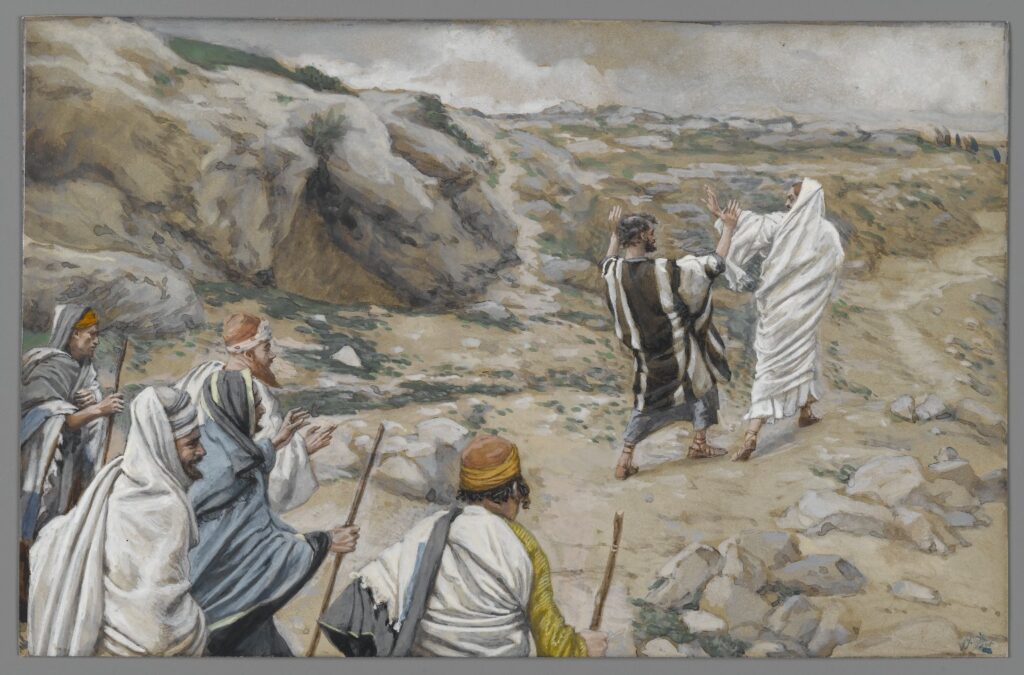
Today, we hear in the Gospel, “Get behind me, Satan! You are an obstacle to me. You are thinking not as God does, but as human beings do.” We find a big contrast with last week’s Gospel when Jesus named Peter the “rock” of the Church and gave him the power of the keys. Our blessed Lord told Peter that the heavenly Father had granted his Faith in Christ’s divinity.
While the term “Satan” sounds very harsh, some of the Fathers of the Church think that Jesus is just calling him an “adversary” and that this term does not necessarily mean that this thought was suggested directly by the devil. In other words, by pointing out that Christ should not undergo his Passion, Peter was unknowingly opposing the Father’s will for Jesus.
While the heavenly Father revealed the mystery of Christ’s divinity to Peter, he had yet to reveal the mysteries of the Passion and the Cross to him. Only after Pentecost was Peter able to completely understand these mysteries through the fullness of the Holy Spirit.
St. John Chrysostom comments, “Estimating the things of Christ by human and earthly principles, he judged it mean and unworthy of Him that He should suffer. Therefore the Lord added, ‘For thou savourest not the things that be of God, but the things that be of men.’” St. Paul says something similar to the Corinthians, “The natural person does not accept what pertains to the Spirit of God, for to him it is foolishness, and he cannot understand it, because it is judged spiritually” (1 Cor 2:14).
In other words, St. Peter was judging with the light of natural reason without the aid of the virtue of Faith or the Gifts of the Holy Spirit. As St. Paul calls it, the “foolishness of the Cross” is impossible to understand without the light of Faith or the Gifts of Counsel, Knowledge, Understanding, and Wisdom.
Unless we have arrived at a high level of holiness where the Gifts of the Holy Spirit govern us, we often find ourselves in a similar situation to St. Peter’s. We have a lot of difficulty understanding suffering and the cross.
Let’s also mention that there is a difference between feeling and understanding. Our Lord felt the pain of the Passion intensely but perfectly understood that suffering was the path to redeeming the whole human race. So, even great saints feel the pain of the cross but suffer with love, peace, and joy because they receive the cross as a gift from the heavenly Father. They understand that the cross is for their good, even though they might not see the complete plan.
So, what are some things we can do when facing pain and suffering?
First, ask the Lord for an increase in Faith and the Gifts of the Holy Spirit. By this virtue and the Gifts, we can see things as God sees them, not as human beings see them.
Second, try to see the suffering as something coming from God’s hand. If God has wanted or permitted it, it is for our good. He is a good Father who gives only good things to his children. And yes, we call God Abba, Father.
Third, remember that Jesus is suffering right next to us. He suffered first, so we never carry our crosses alone; he is always with us. Whatever kind of suffering we are going through, Jesus went through it first and worst.
Fourth, it is only through struggle that we grow in virtue and holiness.
Lastly, if you can, even if you can only do this sometimes, thank to the Lord for the gift of the cross.

